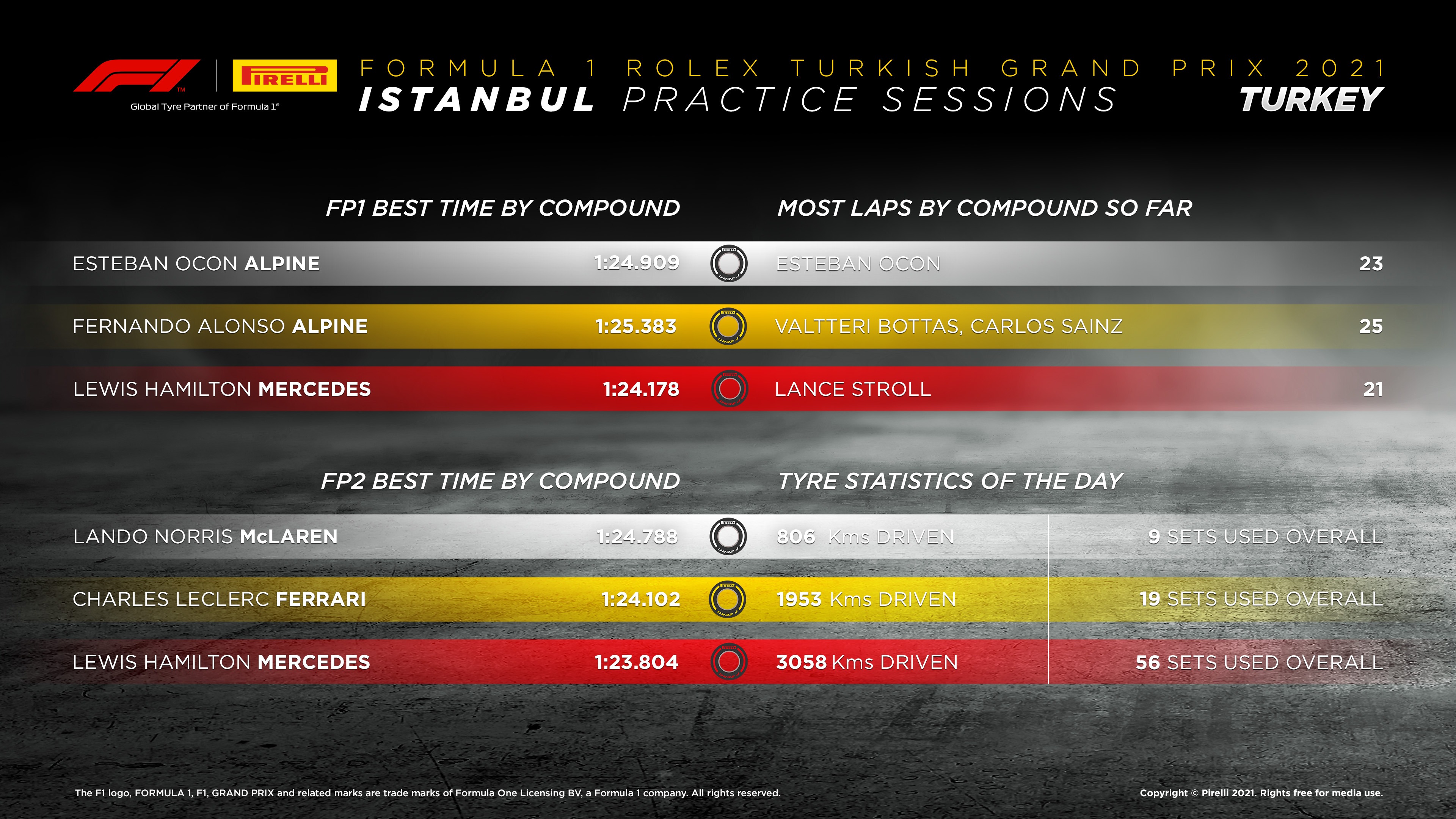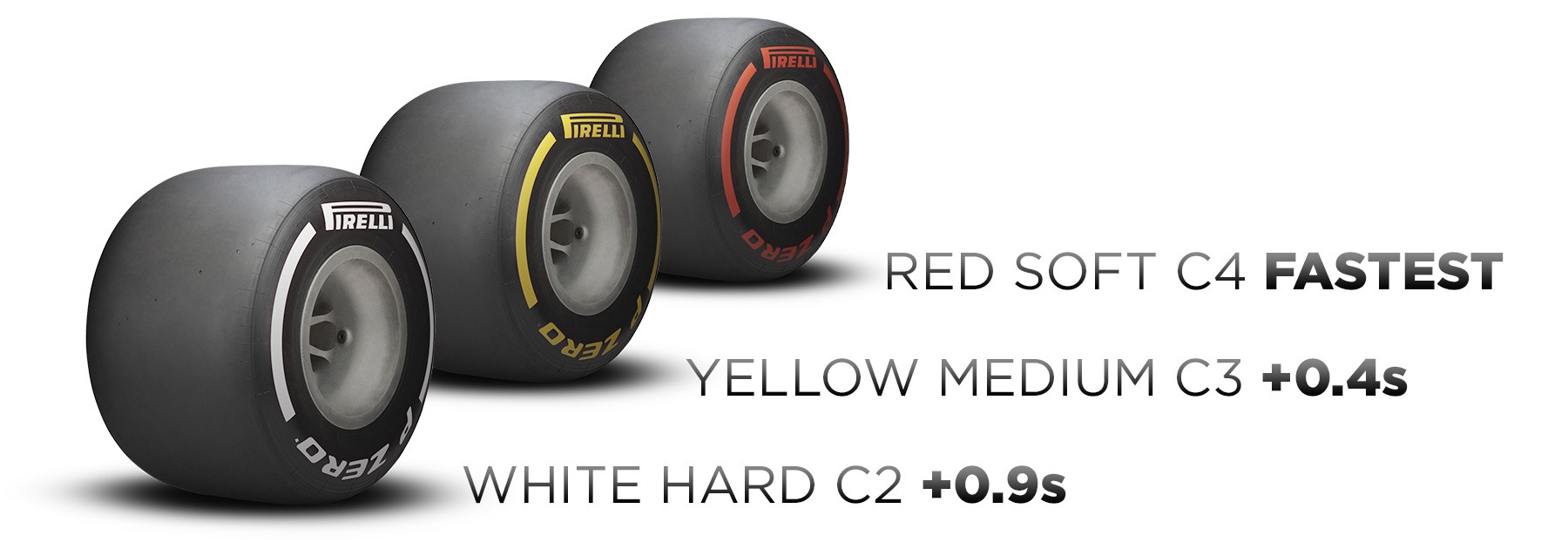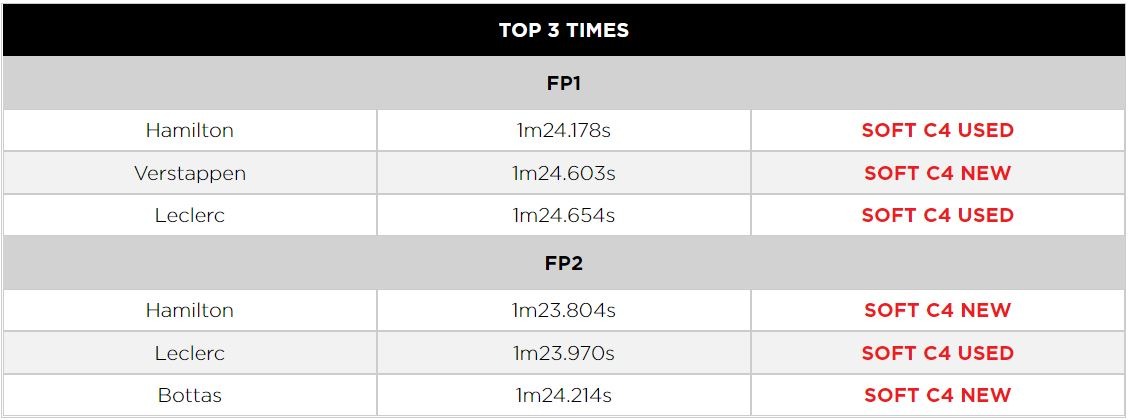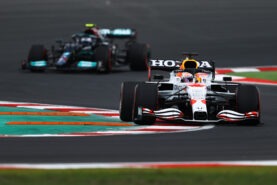Five things F1 teams learned during practice today
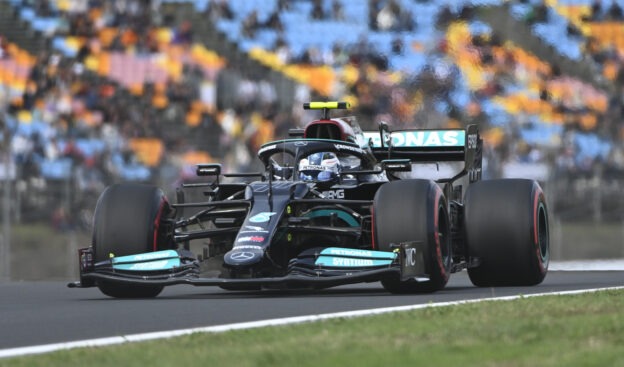
8 Okt. - The two practice sessions of today were driven under completely different grip levels than last year's Turkish GP. Pirelli did supply one step softer compound to Istanbul.
Hamilton and Mercedes choose to fit in a 4th ICE (Internal Combustion Engine), which will give Hamilton a 10 places grid penalty for the start on Sunday. Ferrari also choose to upgrade Carlos Sainz with the new spec 4th power unit. The Spanish driver will have to start from the back of the grid because of it.
Here are the five things learned during those practice sessions:
- Mercedes driver Lewis Hamilton set the pace in free practice at the Turkish Grand Prix, with his best time in FP2 on the P Zero Red soft C4 tyre (1m23.894s) breaking Juan Pablo Montoya's circuit record from 2005, which had already been surpassed in FP1. In the morning, Hamilton was also fastest on the soft, with a time of 1m24.178s. Hamilton and Ferrari's Charles Leclerc were the only drivers to get under the 1m23s barrier.
- The Istanbul Park track – which isn't used much during the year – showed improved grip compared to last year. Hamilton's best FP2 time was around 4,5 seconds faster than the equivalent time in 2020, when the tyre nomination was a step harder.
- The FP2 session was run in conditions that peaked at 23 degrees centigrade ambient and 32 degrees on track, with some gusting winds as well: especially at the crucial Turn 8. However, the weather forecast is more uncertain for the rest of the weekend, with a chance of rain tomorrow and drier conditions expected on Sunday.
- Istanbul remains one of the biggest challenges of the year for the tyres, which are subjected to a 4.5g load under braking following the long run to Turn 1, while the multi-apex Turn 8 is taken flat out, with the tyres under maximum load for around six seconds. The entry to Turn 12 is another heavy braking area at 5g.
- The estimated performance gaps so far between the three compounds are reasonably small here: around 0.5 seconds between P Zero White hard C2 and P Zero Yellow medium C3, and 0.4 seconds between medium and soft. With track evolution (and no major support races on the schedule) those gaps may change over the course of the weekend as more F1 rubber is laid down.
Mario Isola - Head of F1 & Car Racing said:
"From the beginning it was clear that track conditions were much better than last year, with drivers reporting improved grip, and times in both sessions considerably faster than 2020. It's hard to compare this year to last year, because the weather conditions are different and our tyre nomination is a step softer. The track has also been pressure-washed recently, and this has washed off the surface bitumen, although the level of roughness seems to be unaltered.
As a result, we've seen consistent grip throughout the lap – albeit slightly affected by today's gusting winds – and all three tyres providing solid performance, with a bit of graining as expected, especially on the front-right. With so many new aspects compared to last year, the teams will be relying heavily on the information collected today to work out the optimal strategy, rather than the data from 2020. However, there's a risk of rain tomorrow that could cause yet another variable. For the race, what we've learned today is that the hard and medium tyres could be favoured to achieve a one-stop strategy, but the soft could also come into play if the teams are able to mitigate wear."
✅ Check out more posts with related topics:


